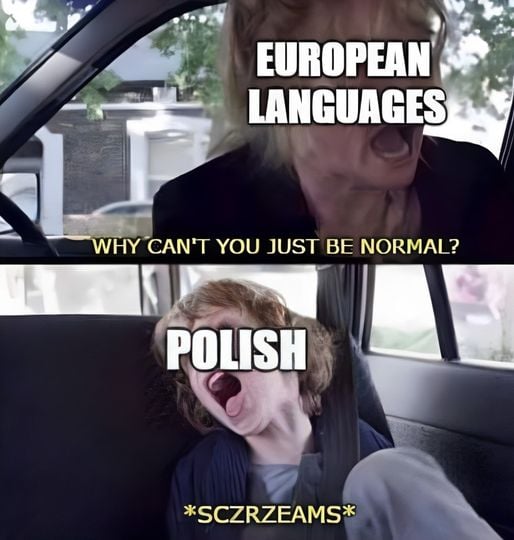this post was submitted on 24 Oct 2024
986 points (98.4% liked)
memes
10875 readers
2707 users here now
Community rules
1. Be civil
No trolling, bigotry or other insulting / annoying behaviour
2. No politics
This is non-politics community. For political memes please go to [email protected]
3. No recent reposts
Check for reposts when posting a meme, you can only repost after 1 month
4. No bots
No bots without the express approval of the mods or the admins
5. No Spam/Ads
No advertisements or spam. This is an instance rule and the only way to live.
Sister communities
- [email protected] : Star Trek memes, chat and shitposts
- [email protected] : Lemmy Shitposts, anything and everything goes.
- [email protected] : Linux themed memes
- [email protected] : for those who love comic stories.
founded 2 years ago
MODERATORS
you are viewing a single comment's thread
view the rest of the comments
view the rest of the comments

I mean, yes and no.
You are assuming that Lithuanian language became formalised when Lithuania was united under one government. Instead, most of language formalisation happened between 1880s and 1920s, when Lithuanian speaking population was actually divided between Prussian and Tzarist Russian empires. While most of the people lived in Tzarist Russia, writing in Lithuanian in Latin script was forbidden there.
Instead, books in Latin script were printed in Prussia and distributed in Russia illegally. A handful of people like J. Basanavičius and V. Kudirka ended up in charge of printing most of those books and it made it easy to set language standards. Achieving such a monopoly with a bigger language would be much more difficult.
That is also why formal Lithuanian is based on one ethnic dialect that was spoken in Prussia.
I'm not assuming when the formalisation happened. I'm saying that it's harder to get everyone to agree on how the orthography is supposed to be, when 2+ governments and populations associated with them are forcing distinctions even when there's none.
You're right that it is not impossible however, and your historical example shows it. Historically Lithuanian is the exception that proves the rule because
And nowadays it's simply not an exception. (I was referring mostly to modern times.)
That's a great tidbit of info, and it's related to what I'm saying: those Lithuanian speakers in Russia only accepted the books as suitable for their language, even if they were printed in Prussia, because they didn't see it as coming from "those other guys".
[Thank you for the info, by the way! Across the whole comment, not just that paragraph.]
You're welcome.
If you want to read more about the history of Lithuania and surrounding countries and their nation formation, a great start would be Timothy Snyder's book "The Reconstruction of Nations", he's the most popular historian of the region who is not from the region.